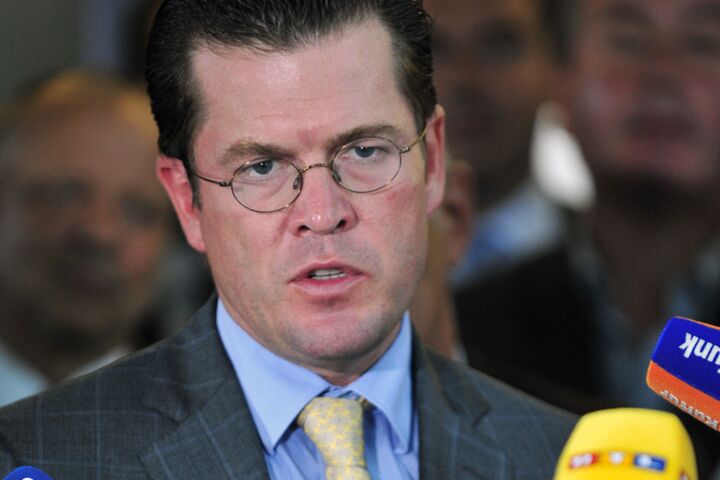
German Defense Minister Unveils Military Reform
German Defense Minister Karl-Theodor zu Guttenberg presented five alternative plans to reform the German armed forces to the German cabinet on Monday, strongly backing model number four, which calls for a smaller, more efficient military.
The German armed forces, or Bundeswehr, have 252,000 soldiers, including around 60,000 conscripts. Guttenberg wants to cut the number of professional soldiers, suspend conscription, cut the defense budget, and make the military more effective.
How?
Rather than being an asset to the military, conscription is holding it back. Deutsche Presse-Agentur reports that “analysts say that the conscription system is both expensive and of little use for a modern army that must be able to deploy abroad quickly.”
Conscripts serve in the army for only six months, reduced from nine months in July. This makes them worse than useless. By the time the army trains them to do something, they move on.
The army finds all kinds of excuses to reduce the number of conscripts it gets lumped with. Last year, 417,300 potential conscripts took medical examinations. The army ordered 68,304 to report for duty.
Few who actually become conscripts get meaningful jobs. Many have to find ways to amuse themselves, as the army tells them to do little more than sit still and do nothing.
The army would be cheaper and leaner without them.
The Bundeswehr was created to protect German soil from Russian invasion. Even now, it is very ineffective at operating outside Germany’s borders. Out of its 252,000 troops, only 7,000 to 8,000 can be sent on missions abroad.
Guttenberg’s plan aims to dramatically increase that number.
Under his plan, conscription would be suspended in 2011. The German government’s power to draft conscripts would still be enshrined in its Basic Law (a sort of constitution), so the government could rapidly expand the army in the future, if necessary.
Instead, Germany will have “voluntary conscripts.” Men and women will be able to sign up for 12 to 23 months of voluntary service in the army. The government would offer fringe benefits for this, and the army would be able to recruit professional soldiers from their ranks.
Guttenberg wants to have 7,500 volunteers and 156,000 professional soldiers, making a total of 163,500 soldiers.
The result of these changes could be dramatic. Journalist Christian Thiel, writing on the website of the German tv news service Tagesschau, says: “This is not a reform, but in reality a revolution, planned by the defense minister.”
Currently, he writes, the army is “groaning under the burden of bureaucracy and duplication and military decisions that are more about economic support than military sense.”
“Karl-Theodor zu Guttenberg (csu) wants to make the homeland defense an army of intervention,” he says. Guttenberg still faces stiff opposition, however, with Angela Merkel’s Christian Democratic Union (cdu) being historically pro-conscription. “We have very few financial resources, but we need to anchor the Bundeswehr in society more firmly,” said the cdu’s Roland Koch, outgoing prime minister of Hesse.
Clearly, if the German army is going to have any success, it needs reform. By bringing about that reform, Guttenberg is not cutting the strength of the German army. He may be trimming the fat, but he is building the foundation of a much stronger, more efficient German fighting machine.
